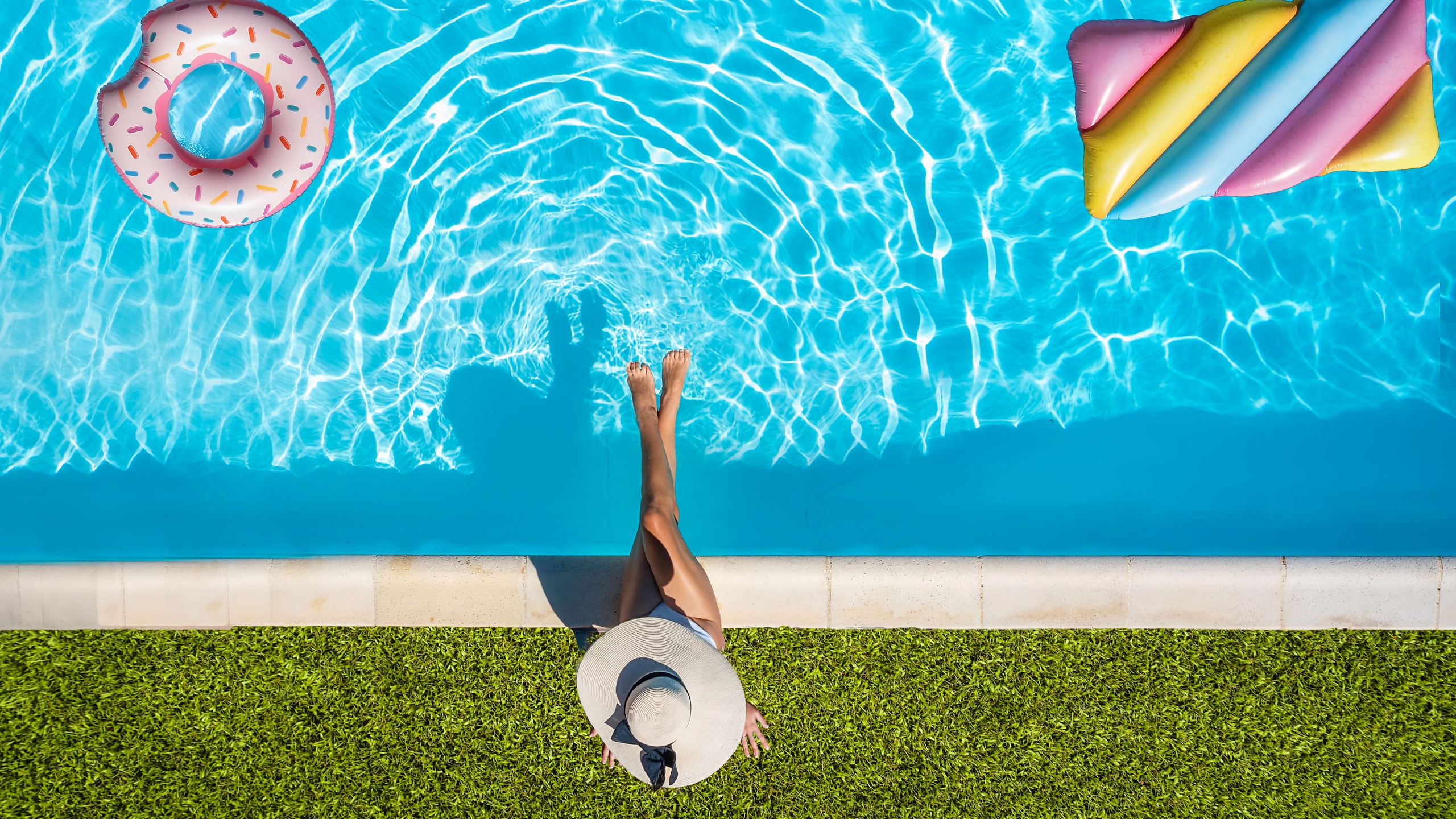The Impact of Pool Water on Lawns
Let’s face it: cannonballs are fun, but they send water everywhere. But will pool water kill grass? In large quantities (such as overflow and draining), you can see damage to your yard. However, you don’t have to choose between having a green yard or a swimming pool.
Will Chlorine Water Kill Grass?
Yes. With prolonged exposure, pure chlorine will kill your grass. Pools use a small amount of chlorine that is diluted. An average pool will have chlorine levels anywhere from 2 to 4 parts per million (commonly abbreviated as ppm), but the CDC recommends that you keep your chlorine at about one ppm as a lower chlorine level will be better for your family and grass.
Chlorine levels above ten ppm may cause skin irritation. That being said, splashes from even the best cannonball won’t damage or kill your grass at this level.
The less diluted your chlorine water is, the more likely it is to irritate or cause damage. If you spill chlorine, it’s important to quickly dilute it to avoid damage. Use a hose or bucket to dilute the chlorine before it can cause damage to the surface of your pool deck or kill surrounding landscaping.
Does Saltwater Pool Water Kill Grass?
Saltwater may damage plants, particularly if there’s a large amount of water or if it has high salt content. The salt level in a saltwater pool should be low enough that it does not cause damage to your grass or landscaping during incidental spills or splashes.
Saltwater, in nature, has salt levels of over 35 grams per liter, while freshwater usually has less than one gram per liter. One misconception about saltwater pools is that they have no chlorine, but this is not true. The salt in the pool converts to chlorine through electrolysis; therefore, your pool will have a similar chlorine reading as your typical chlorine pool.
Can You Drain Pool Water into Grass?
Proper pool maintenance includes overflow drainage. Unlike splashes that come from jumping, draining pool water unleashes large quantities of water, saltwater or chlorinated. In these amounts, it will be hard to keep your yard from being damaged, so try to direct your drainage to a spot of your yard that is either less visible or a spot that you designate to be plant free. You can use gravel to designate a drainage area for small amounts of overflow drainage. Another option people use to save their grass is running drainage to a storm sewer. In some places, this can result in fines, so consult your local sewer authority.
Keep Your Pool’s Chemical Levels in Check
You'll want to monitor your chlorine and salt levels to protect your grass and keep your pool water safe for your family. Don’t waste valuable swimming time checking levels; leave it to us! Your local America’s Swimming Pool Company specializes in pool chemical safety, and we’ll make sure that your summer is filled with worry-free splashes. Request service online or call us at (866) 253-0455 today.



